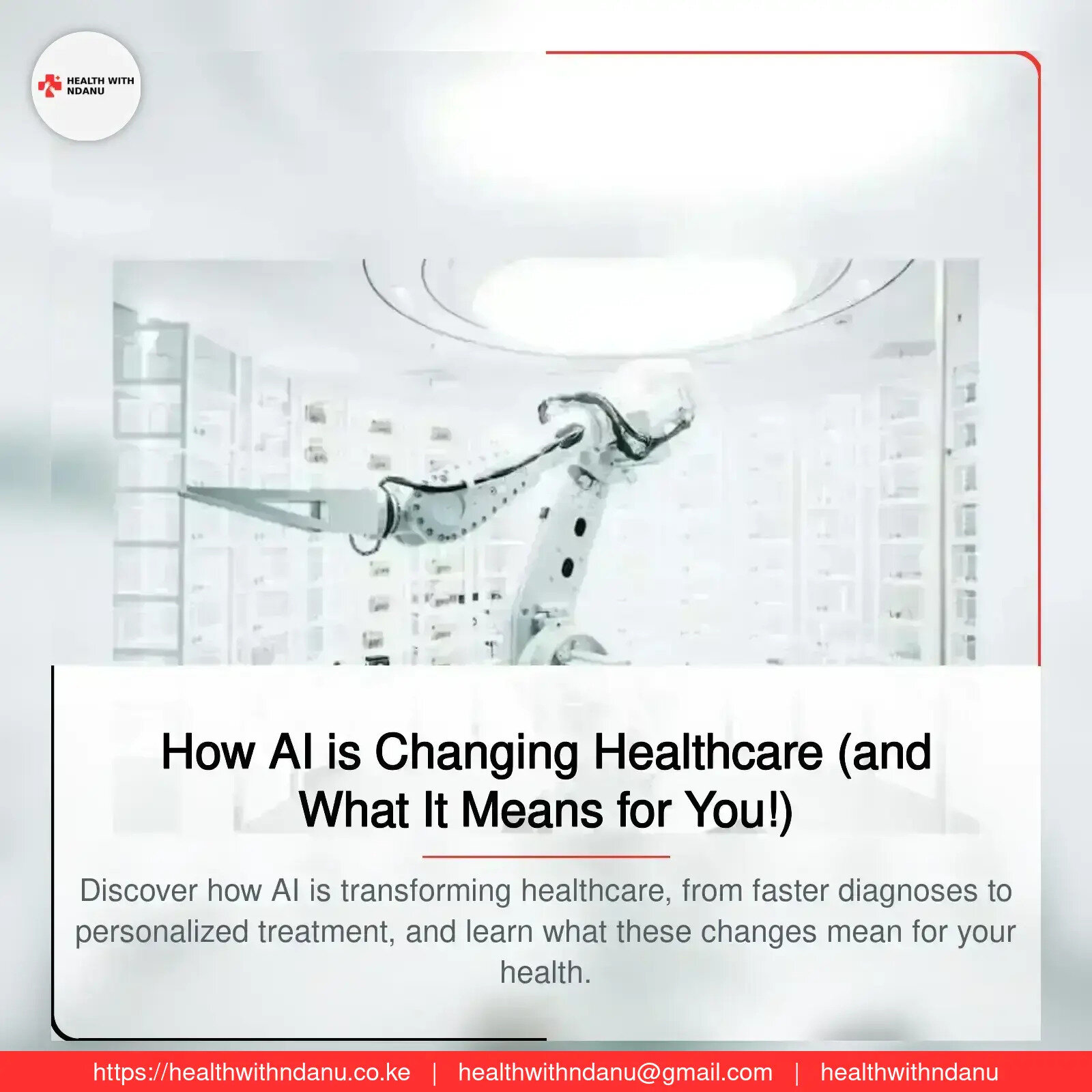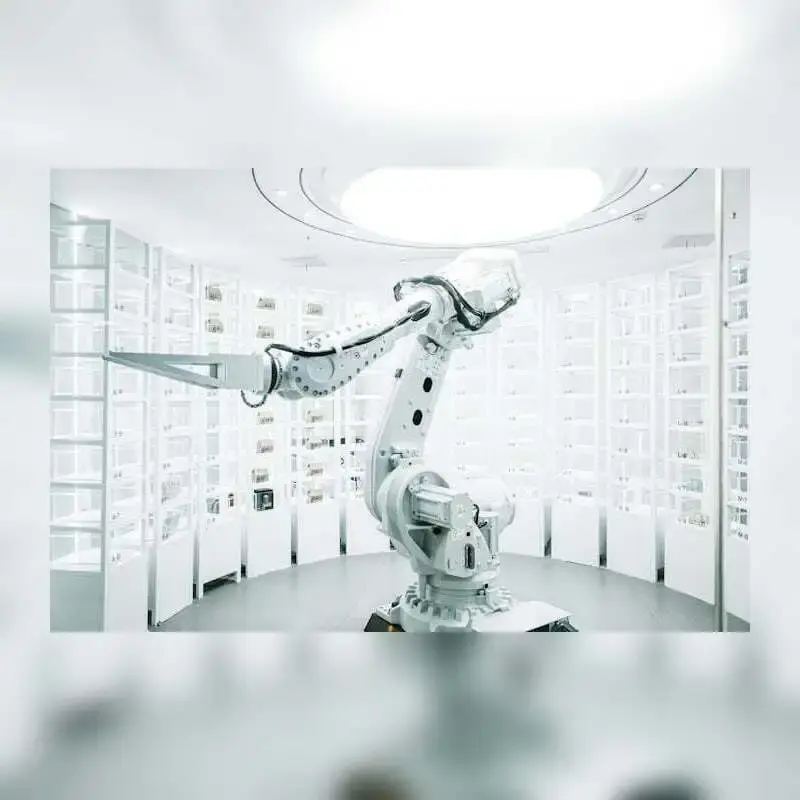How AI is Changing Healthcare (and What It Means for You!)
- by Diana Ndanu
- 07 February, 2025
- 0 Comments
- 4 Mins



🚀 The Future of Healthcare is Here—And It’s Exciting
Imagine a world where your smartwatch can warn you about heart problems before they happen, an app on your phone can diagnose illnesses in seconds, and doctors use AI-powered robots to perform surgeries with pinpoint precision.
Sounds like something out of a sci-fi movie, right? Well, it’s happening right now.
Technology is completely transforming healthcare, making it faster, smarter, and more accessible for everyone. From AI-driven diagnostics to telemedicine and wearable health devices, medicine is going digital—and that’s great news for all of us.
So, what does this mean for you? Let’s break it down in simple terms.
🧠 AI is Helping Doctors Diagnose Diseases Faster
We all know that early detection saves lives—but what if AI could help catch diseases before you even feel sick?
🔍 Real-World Example: AI Detecting Cancer
-
- Google’s DeepMind AI can spot breast cancer in scans with higher accuracy than human doctors.
- IBM Watson Health helps oncologists find the best treatment options based on medical research.
💡 What This Means for You: AI can catch diseases earlier, which means better treatment options and higher survival rates.
📱 Seeing a Doctor from Your Couch (Thanks, Telemedicine!)
Nobody likes waiting in long lines at the doctor’s office. Wouldn’t it be great if you could just chat with a doctor from your phone?
How Telemedicine Works
-
- Apps like Teladoc and Babylon Health let you video call a doctor anytime, anywhere.
- AI chatbots can analyze your symptoms and tell you if you need to see a specialist.
💡 Why This Matters: Whether you're in a big city or a rural town, you can get fast, expert medical advice without leaving home.
⌚ Smart Health Devices: Your Personal Doctor on Your Wrist
Wearable health devices are more than just fitness trackers—they’re becoming life-saving tools.
🔬 Real-World Example: Apple Watch & Fitbit
-
- The Apple Watch has detected irregular heartbeats and even warned users about potential heart attacks.
- Fitbit & WHOOP track stress, sleep, and overall health, helping users stay on top of their wellness.
💡 Why This Matters: Your smartwatch isn’t just tracking steps—it’s watching over your health.
🤖 AI in Surgery: Robots Are Assisting Doctors
Would you trust a robot to help with your surgery? Well, thousands of people already have!
🔬 Real-World Example: Da Vinci Surgical Robot
-
- This AI-powered robot helps surgeons perform precise, minimally invasive surgeries.
- Patients recover faster and with fewer complications.
💡 What This Means for You: If you ever need surgery, AI-assisted procedures can make it safer and improve your recovery time.
🔮 What’s Next? The Future of AI in Healthcare
We’re just getting started! Here’s what’s coming soon:
🔹 AI predicting diseases before symptoms appear (early detection will be even better!).
🔹 AI-powered mental health support (apps like Wysa & Woebot are already offering therapy-like chats).
🔹 AI helping discover new medicines faster (new treatments in months instead of years!).
🔹 AI + gene editing to cure genetic diseases (fixing health problems before they start!).
💡 Why This Matters: The future of medicine isn’t just about curing diseases—it’s about preventing them before they even happen.
📢 What This Means for You
AI isn’t replacing doctors—it’s helping them provide better, faster, and more personalized care. Whether it’s AI-powered diagnoses, robotic surgeries, or virtual doctor visits, these technologies are making healthcare easier, safer, and more accessible for everyone.
Now, over to you!
💬 What AI-powered health innovation excites you the most? Drop a comment and let’s chat?
Got Your Own Experience? Share with us
Popular Categories
Mablogu Zinazobambwa Sana
Daily Newsletter
Get all the top stories from Blogs to keep track.



